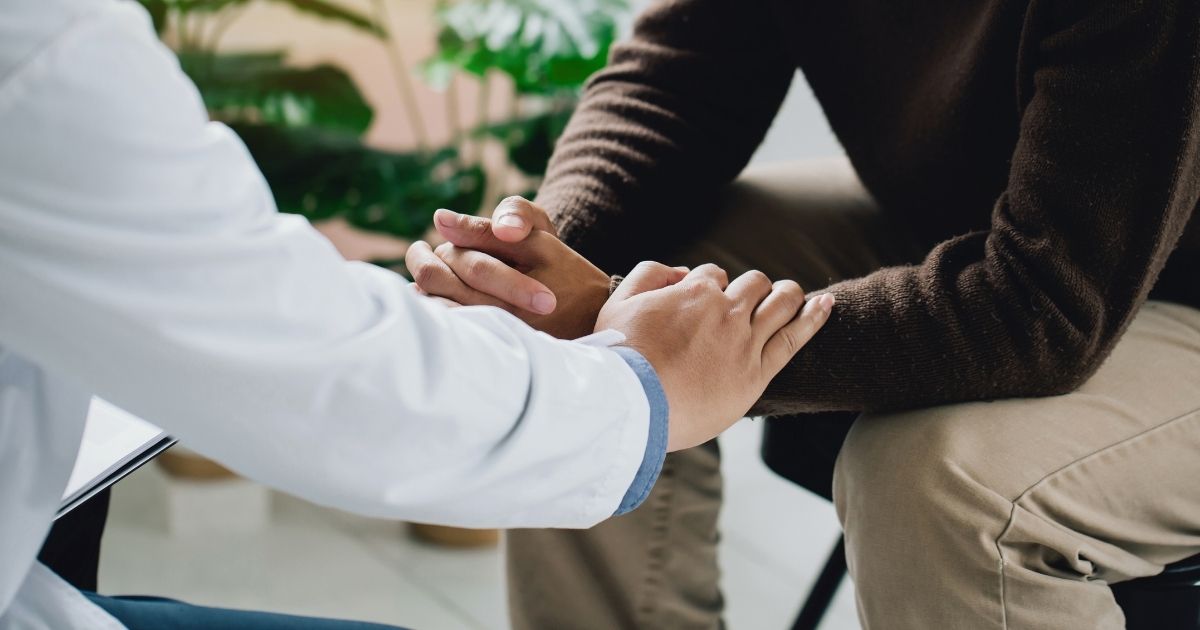Knowing where to access the appropriate care in a time of need.
When faced with a behavioral health crisis, knowing where to turn for help can be overwhelming. Whether it's a mental health emergency, emotional distress, or substance use concerns, understanding your options is crucial.
How and where should a person go to seek care for a mental or behavioral health crisis? Let's review the pros and cons of choices in West Michigan.
Is the ER the best place to seek care for a behavioral health crisis?
The emergency room (ER) is often the first place people think of during a crisis. However, for those struggling with emotional distress or similar concerns, other options might be more suitable:
- Call or Text 988: This national hotline connects you to trained mental health professionals who can provide support and guidance. It's a reliable resource for anyone needing immediate help but not in a life-threatening situation.
- Network180: Kent County residents can call 616-336-3909 for 24/7 support. This service offers immediate assistance and connects individuals to local resources.
- Behavioral Health Crisis Center (BHCC): Located at Trinity Health Grand Rapids, the BHCC provides walk-in care 24/7 for adults aged 18 and over. It offers a specialized, calmer environment for those whose safety is not immediately at risk.
- Mobile Crisis Response: Available 24/7, this service brings clinicians to individuals who cannot come to the BHCC or are under 18 and need help. Call 616-333-1000 for assistance.
Behavioral Health Crisis Center
Opened in May 2024, the BHCC is a collaboration between Trinity Health and Network180. It offers walk-in behavioral health services around the clock, located at 260 Jefferson Ave. SE in downtown Grand Rapids.
The BHCC provides emergency behavioral health care and a short-term crisis stabilization unit (CSU). Most individuals are stabilized and connected to ongoing services within a few hours, but the CSU allows for stays up to 72 hours if more intervention is needed.
This center serves anyone aged 18 and over, regardless of insurance status. In its first six months, the BHCC has helped more than 500 individuals through walk-in services and more than 600 in the CSU.
911 vs. 988
Both 911 and 988 are essential for keeping communities safe and healthy, but they serve different purposes. Call 911 for immediate emergencies such as fires, crimes, or severe medical situations requiring urgent help from police, fire, or EMS services.
988 is dedicated to mental health crises. It connects callers to trained mental health professionals who provide support and guidance, and when necessary, links individuals to local crisis resources.
If you or someone else is experiencing a mental health crisis, such as thoughts of suicide or extreme emotional distress, call 988 for immediate support.
Kent County – 24/7 Mobile Crisis Response
Network180's Mobile Crisis Response Team supports youth, families, and adults in Kent County experiencing a mental health crisis. This team of mental health professionals meets individuals where they are, helps de-escalate and stabilize the situation, and connects them to ongoing resources. This service is available to anyone, regardless of insurance status.
For more information about local resources and the 988 hotline, visit:
Navigating a behavioral health crisis can be daunting, but knowing your options and where to seek help can make a significant difference. Whether through the ER, 988, or local resources like the BHCC and Mobile Crisis Response, support is available to guide you through these challenging times.
Visit TrinityHealthMi.org/BehavioralHealth to learn more about Behavioral and Mental Health Services. If you are experiencing a mental health crisis, call 988 or text HOME to 741741 for help.
Written by Carrie Mull, DNP, RN, administrative director of behavioral health at Trinity Health in West Michigan.
Courtesy of Trinity Health.




